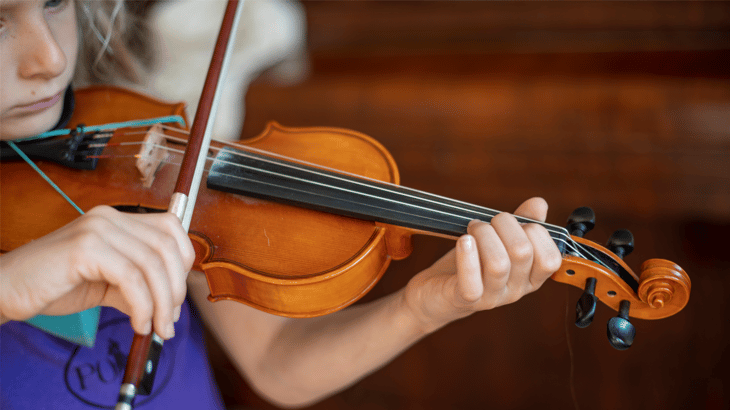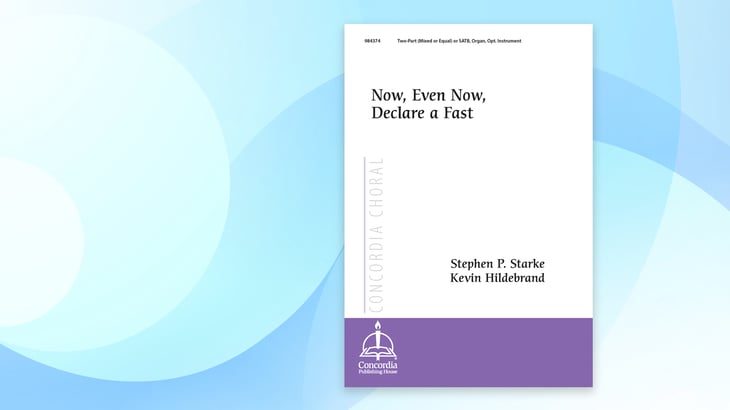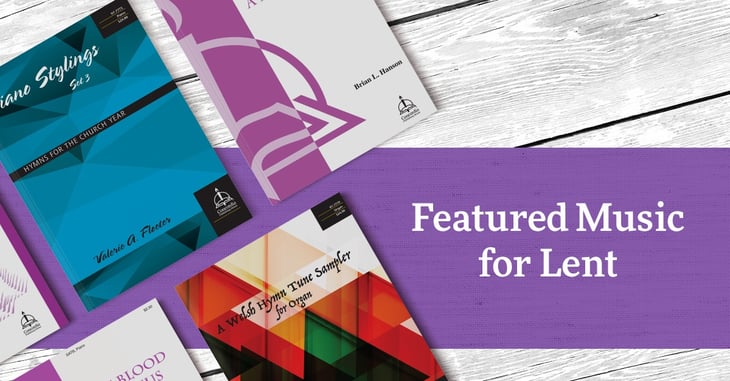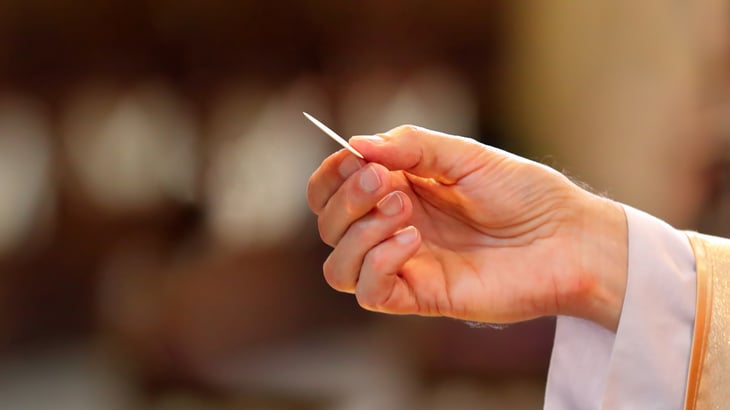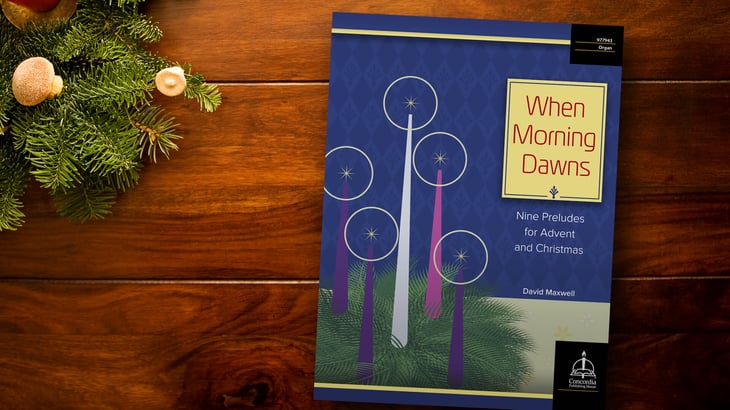Music Education and Child Development
The ancient Greeks recognized the importance of music as part of a complete education. In the Greek gymnasiums of ancient times, men sought physical fitness through training, but education in music was also essential. Greek philosophers argued that music was important because it refined the mind. Gymnastics (or physical training) and music together completed a man’s education.
Music of the Month: Now, Even Now, Declare a Fast
Kevin Hildebrand has set a text by Stephen P. Starke to the Welsh tune LLEF. This easy-to-learn composition is useful throughout the Lenten season, especially on Ash Wednesday during the imposition of ashes. Written to be flexible, it may be sung by soloists or a two-part choir, with an optional SATB stanza, and it may be modified in length. An optional part for treble instruments is included.
Do We Listen to Too Much Music?
I was recently listening to a podcast in which one of the hosts shared a personal anecdote about his attempt to not listen to music all day. He briefly related how he realized he had music playing almost constantly and found it incredibly difficult to stop listening for one 24-hour period. This experiment reminded me of the countless people I know who work with headphones on or earbuds in all day long. It is almost assumed today that music will have a permanent place in the background of most environments, be it the office, a coffee shop, or anything in between.
Featured Church Music for Lent
If you’re looking for some special music to incorporate into your repertoire this season, here are some of our recently added Lenten selections to check out.
Why Do Christians Celebrate Communion at Christmas?
When I was a child, my church always sang “Let All Mortal Flesh Keep Silence” on Christmas Day as the Communion elements were processed into the sanctuary. The congregation would start quietly and crescendo with each verse, serving to highlight the Lord’s Supper as the high point of the service. We would have the hymns printed in a bulletin, so I remember being surprised the first time I realized that this hymn is found in the Lord’s Supper section of the hymnal rather than the Christmas section.
Pondering Christ in Our Work as Church Musicians
A common complaint in our modern culture is the swiftness of time. It seems like every month we look at each other and ask, “Where did the last month go?” For church musicians, this is especially true during Advent as Christmas approaches, more closely followed than we might wish by Lent and Easter. It seems as though there is never enough time to adequately prepare our music and our hearts for each season.
Music of the Month: When Morning Dawns: Nine Preludes for Advent and Christmas
David Maxwell has crafted nine extensive organ settings for Advent and Christmas in this collection. Maxwell uses a variety of styles ranging from introspective (W ZLOBIE LEZY) to strong and majestic (CONSOLATION). The collection also includes a joyful toccata of ANTIOCH and a lively swung setting of GO TELL IT. These settings will be enjoyable for all levels.
Waiting for the Light of the World
“Jesus Christ is the Light of the world, the light no darkness can overcome.”
These words mark the opening of the service of Evening Prayer (Lutheran Service Book, p. 243). The language of light and darkness reminds us that Christ, our light, has overcome the darkness of sin, death, and the evil one. Christ as the light of the world is taken directly from Scripture and is a recurring theme throughout Advent. As a new Church Year begins in the season of Advent, we are surrounded by reminders in Scripture, in hymns and the liturgy, in traditions, and in nature, that light remains a crucial component both of our biology and our faith.
Music of the Month: The First Noel
The First Noel is one of the final contributions to the Concordia Publishing House choral catalog by the late Carl F. Schalk (1929–2021). Schalk’s soaring tune and captivating setting of the beloved Christmas carol is set for SATB, strings, tubular bells, and timpani. Useful for concerts, services, and pageants, the piece is a processional carol. The new tune and unique combination of instrumentation will engage listeners and set the tone for concerts and worship.
Technology and Church Music
We live in a world dominated by digital technology—technology that majorly affects our modern musical world. Although digital technology can offer us a wealth of music we might otherwise not have access to, digital recordings lack the inherent risk of live performance—a risk that lends live performances a certain sense of humanity. This humanity reflects the reality of our lives, including the reality of salvation through Christ. Although digital technology in the musical world is a great gift, it is a worthy endeavor to continue to pursue live musical performances in order to experience the wonder and beauty of music that we must take as is in all its imperfection.
